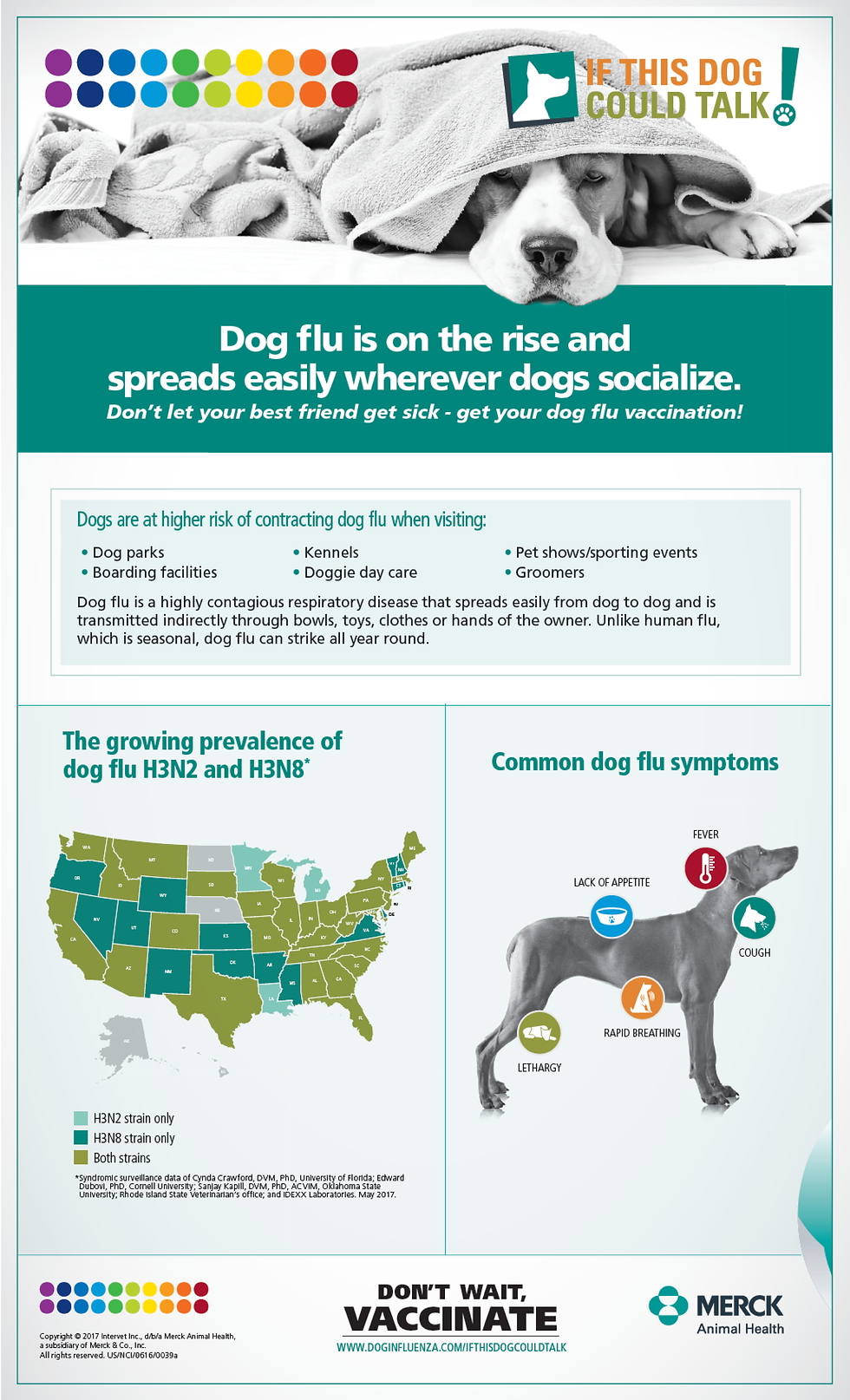Canine Influenza: Why Vaccinate?
- Dr. Cody Kalmon
- Jul 11, 2017
- 2 min read
What is canine influenza?
Canine flu is a highly contagious respiratory disease. The two strains of concern are the more typical H3N8 subtype that is a mutation of equine influenza A and H3N2. H3N2 is the strain that was first identified in Chicago in the spring of 2015. It is so contagious that the Purdue Small Animal Veterinary Teaching Hospital decreased its patient load during the 2015 outbreak of H3N2 to decrease the spread of the virus.
Who is at risk?
Canine influenza only affects dogs (dog-to-dog) and it is not transmissible to people. All ages of dogs are susceptible. Like other diseases, vaccinating for the disease decreases the likelihood that your dog will become infected. It also decreases the severity and duration of disease in dogs that are vaccinated and still present with clinical signs. Most at risk are dogs that go to boarding, dog parks, dog shows, pet stores, grooming, or other high density canine population areas. Approximately 80% of exposed non-vaccinated dogs will become infected by this respiratory disease.
Symptoms and Complications
Canine influenza can present in many ways. It can present as a subclinical mild cough and lethargy in some patients. More commonly, it presents as a honking cough similar to infectious tracheobronchitis (kennel cough) which can be persistent over a period of a month. This form is also associated with fever, lethargy, decreased appetite, difficulty breathing, nasal discharge and like other forms of the disease is extremely transmissible to other canines. The final form is severe with potential life threatening secondary invasion of bacteria into the lungs leading to pneumonia. This occurs in approximately 5-20% of cases. All presentations of the canine flu virus are very contagious and can be passed to other dogs throughout that month of disease even before the dog may show symptoms.
Where is it?
Unlike the human flu, canine influenza isn't a seasonal virus. It can pop up at any time and since it is highly contagious it is likely to spread to new areas quickly especially if the disease is present at high density dog population events. The most recent outbreak of canine flu was traced to a dog show in Georgia and has spread from there to Louisville as well as many other suspected cases in the southern region of the US.
Why vaccinate?
Currently canine influenza is not an issue in Indiana but since it is extremely contagious to other dogs it could become a serious issue here in Bloomington soon. Infectious disease experts recommend vaccinating for flu before it becomes a problem in your area, because it spreads so quickly.
How to vaccinate?
At Furry Friends Veterinary Hospital, we offer the bivalent vaccine which protects against both H3N2 and H3N8. The initial vaccination requires a two shot series, one now and a booster in 3-4 weeks. After this initial series it is a once yearly vaccine like most other vaccinations. The cost per shot is $35. An exam would need to be performed during the initial vaccine (unless your dog has been seen recently at Furry Friends), but boosters would not require an additional exam unless requested by the client. All new clients get a first free exam.

Source: Côté, Etienne. Clinical veterinary advisor: dogs and cats. Second ed. St. Louis, Mo: Mosby Elsevier, 2011. Print.










If you're planning to pursue an MBA in International Business, then IIFT Delhi is undoubtedly one of the best choices in India. At MyCampusReview, we provide in-depth and unbiased insights into top educational institutions, and here’s what you need to know about IIFT Delhi from MyCampusReview.
The Indian Institute of Foreign Trade (IIFT), Delhi, is known for its world-class faculty, industry-relevant curriculum, and excellent placement opportunities. Through IIFT Delhi from MyCampusReview, you can explore detailed student reviews, real campus experiences, infrastructure highlights, academic rigor, and placement statistics that will help you evaluate if IIFT is the right fit for your career goals.
Whether you're curious about life inside the campus, want to understand the ROI, or are comparing it with…